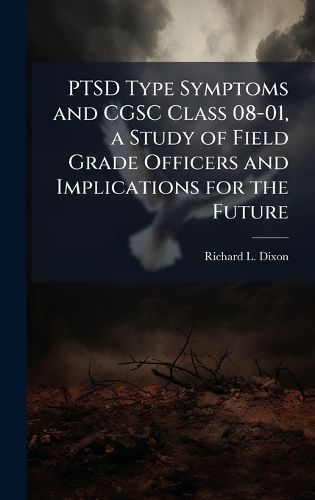Readings Newsletter
Become a Readings Member to make your shopping experience even easier.
Sign in or sign up for free!
You’re not far away from qualifying for FREE standard shipping within Australia
You’ve qualified for FREE standard shipping within Australia
The cart is loading…






This title is printed to order. This book may have been self-published. If so, we cannot guarantee the quality of the content. In the main most books will have gone through the editing process however some may not. We therefore suggest that you be aware of this before ordering this book. If in doubt check either the author or publisher’s details as we are unable to accept any returns unless they are faulty. Please contact us if you have any questions.
With the emergence of the Global War on Terror (GWOT), the mental illness of Post Traumatic Stress Disorder (PTSD) is increasingly identified in returning veterans. A 2006 mental health study released by the Pentagon found 11% of returning OEF veterans and 19% of returning OIF veterans have mental health issues. Of the veterans sampled, 5% were Army Officers and 2% were Marine Officers. Thus, the primary research question was: Are the combat veterans of CGSC Class 08-01 representative of the Army's statistics on returning veterans with PTSD type symptoms? Using the Post Traumatic Stress Disorder Checklist-Military Version (PCL-M) and a demographic questionnaire, a survey sample of 297 field grade officers from a population of 584 combat veterans found 35% of single tour OEF veterans and 41% of single tour OIF veterans had PTSD type symptoms. 41% of multiple tour veterans had PTSD type symptoms. 50% of the survey sample believed mental health counseling would damage their careers and the percentage increased to 70% among those with PTSD type symptoms.
This work has been selected by scholars as being culturally important, and is part of the knowledge base of civilization as we know it. This work was reproduced from the original artifact, and remains as true to the original work as possible. Therefore, you will see the original copyright references, library stamps (as most of these works have been housed in our most important libraries around the world), and other notations in the work.
This work is in the public domain in the United States of America, and possibly other nations. Within the United States, you may freely copy and distribute this work, as no entity (individual or corporate) has a copyright on the body of the work.
As a reproduction of a historical artifact, this work may contain missing or blurred pages, poor pictures, errant marks, etc. Scholars believe, and we concur, that this work is important enough to be preserved, reproduced, and made generally available to the public. We appreciate your support of the preservation process, and thank you for being an important part of keeping this knowledge alive and relevant.
$9.00 standard shipping within Australia
FREE standard shipping within Australia for orders over $100.00
Express & International shipping calculated at checkout
Stock availability can be subject to change without notice. We recommend calling the shop or contacting our online team to check availability of low stock items. Please see our Shopping Online page for more details.
This title is printed to order. This book may have been self-published. If so, we cannot guarantee the quality of the content. In the main most books will have gone through the editing process however some may not. We therefore suggest that you be aware of this before ordering this book. If in doubt check either the author or publisher’s details as we are unable to accept any returns unless they are faulty. Please contact us if you have any questions.
With the emergence of the Global War on Terror (GWOT), the mental illness of Post Traumatic Stress Disorder (PTSD) is increasingly identified in returning veterans. A 2006 mental health study released by the Pentagon found 11% of returning OEF veterans and 19% of returning OIF veterans have mental health issues. Of the veterans sampled, 5% were Army Officers and 2% were Marine Officers. Thus, the primary research question was: Are the combat veterans of CGSC Class 08-01 representative of the Army's statistics on returning veterans with PTSD type symptoms? Using the Post Traumatic Stress Disorder Checklist-Military Version (PCL-M) and a demographic questionnaire, a survey sample of 297 field grade officers from a population of 584 combat veterans found 35% of single tour OEF veterans and 41% of single tour OIF veterans had PTSD type symptoms. 41% of multiple tour veterans had PTSD type symptoms. 50% of the survey sample believed mental health counseling would damage their careers and the percentage increased to 70% among those with PTSD type symptoms.
This work has been selected by scholars as being culturally important, and is part of the knowledge base of civilization as we know it. This work was reproduced from the original artifact, and remains as true to the original work as possible. Therefore, you will see the original copyright references, library stamps (as most of these works have been housed in our most important libraries around the world), and other notations in the work.
This work is in the public domain in the United States of America, and possibly other nations. Within the United States, you may freely copy and distribute this work, as no entity (individual or corporate) has a copyright on the body of the work.
As a reproduction of a historical artifact, this work may contain missing or blurred pages, poor pictures, errant marks, etc. Scholars believe, and we concur, that this work is important enough to be preserved, reproduced, and made generally available to the public. We appreciate your support of the preservation process, and thank you for being an important part of keeping this knowledge alive and relevant.